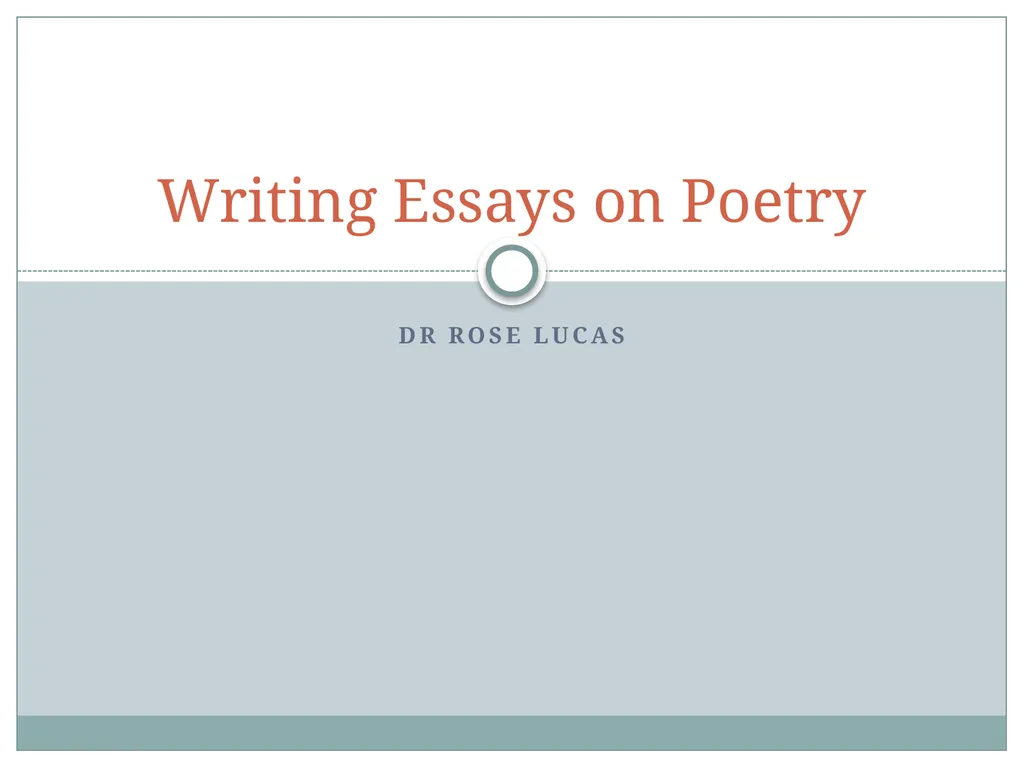
Author : briana-ranney | Published Date : 2025-05-23
Description: Dr Rose Lucas Writing Essays on Poetry What is an essay? To try out ideas, essayer To bring together a) your particular responses to a piece of literature, b) engage directly with the topic, which, on some level, will be asking you toDownload Presentation The PPT/PDF document "" is the property of its rightful owner. Permission is granted to download and print the materials on this website for personal, non-commercial use only, and to display it on your personal computer provided you do not modify the materials and that you retain all copyright notices contained in the materials. By downloading content from our website, you accept the terms of this agreement.
Here is the link to download the presentation.
"Dr Rose Lucas Writing Essays on Poetry What is an"The content belongs to its owner. You may download and print it for personal use, without modification, and keep all copyright notices. By downloading, you agree to these terms.











![[EBOOK] - Heavenly Essays: 50 Narrative College Application Essays That Worked](https://thumbs.docslides.com/902354/ebook-heavenly-essays-50-narrative-college-application-essays-that-worked.jpg)
![[DOWNLOAD] - Essays That Worked: 50 Essays from Successful Applications to the Na...](https://thumbs.docslides.com/902965/download-essays-that-worked-50-essays-from-successful-applications-to-the-nation-s-top-colleges.jpg)
![[READ] - Essays That Will Get You into Business School (Essays That Will Get You ...](https://thumbs.docslides.com/903087/read-essays-that-will-get-you-into-business-school-essays-that-will-get-you-into-series.jpg)